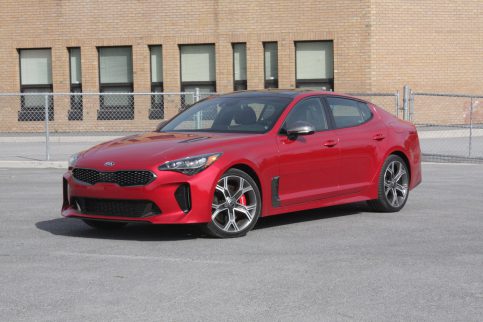Every year, more new vehicles come equipped with high-tech features conceived to make driving safer and more convenient. While many of these features will eventually make self-driving cars possible, in many cases, the technologies aren’t yet perfect.
That’s particularly important when it comes to active safety features and driver assists. In some cars, these technologies work so well the driver doesn’t notice them. Others are more intrusive and can be distracting, potentially negating their purpose.
Auto-industry research firm J.D. Power believes that such issues can affect how satisfied a driver will be with their new vehicle, so it conducts an annual survey called the Tech Experience Index to rank how well these modern automotive features work.
This year, the J.D. Power survey shows that collision prevention, smartphone integration and features designed to enhance comfort and convenience are most appreciated by drivers. But car owners were more often annoyed by lane-keeping assist, which will help steer the car if the driver wanders too close to the lane markings. Built-in navigation fared relatively poorly as well, because smartphone integration platforms like Apple CarPlay and Android Auto make it easy to use the integrated navigation functions in these devices.
J.D. Power said seven vehicle models stood out for the seamless work of their advanced technology features. All are relatively new or were recently redesigned, but most have been around long enough that there are already plenty of examples available on the used market.
Kia Stinger – Overall Winner
The Kia Stinger sport sedan scored highest overall in the Tech Experience Study and topped the compact luxury car category. The Stinger is one of Kia’s pricier models: For about $50,000 new, it comes with the Apple and Android mirroring programs, blind-spot detection, rear cross-traffic alert, navigation, adaptive cruise control, lane-keeping assist and forward-collision warning with automatic braking.
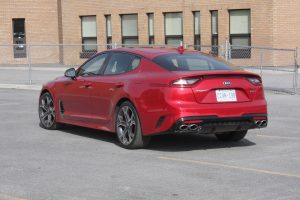
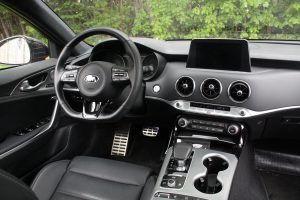
Hyundai Kona and Toyota C-HR – Best Subcompacts
Both of these cars are budget-priced subcompact crossovers that compete with one another directly for buyers.
The Hyundai Kona’s roughly $28,000 2.0L Luxury trim includes Apple CarPlay, Android Auto, blind-spot warning, lane-change and lane-keep assist, rear cross-traffic warning, adaptive cruise control, and collision warning with emergency braking.
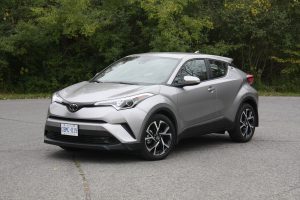
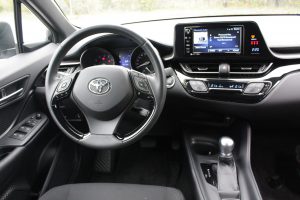
In the C-HR , the same features are included in the XLE Premium package for $27,325.
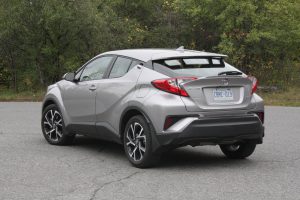
Kia Forte – Best Compact
The Kia Forte is a small sedan that has been around since 2010 but was last redesigned for 2019. Its EX Premium model comes with a full slate of safety and convenience features, including smartphone integration, lane-keep assist, forward-collision avoidance, a blind-spot monitor with cross-traffic warning, and adaptive cruise control.
Chevrolet Blazer – Best Mid-Size
Chevrolet introduced this mid-size crossover as a 2019 model. If you want one with the lane-change, blind-spot and cross-traffic alerts, look for either an RS or Premier trim, which start at $46,300 and $48,700 at new-vehicle dealerships. Those trims also include built-in navigation. The Blazer’s complete high-tech package is optional in both trims, and adds collision warning, automatic braking, lane-keep assist and adaptive cruise control. Notably, the driver’s seat vibrates when one of its safety alerts is activated.
Ford Expedition – Best Large Vehicle
To buyers looking for a full-size vehicle, J.D. Power recommends the Ford Expedition SUV. It is indeed large, and comes in both standard and extended-length Max forms. The Expedition’s top Platinum trim gets Ford’s best technology for a new-vehicle price of more than $72,500. Standard items include lane-departure warning, adaptive cruise control and built-in navigation, while forward-collision warning and prevention, lane-keeping assist and driver attention alert are options.
Porsche Cayenne – Best Mid-Size Luxury Vehicle
Finally, J.D. Power’s survey showed that the Porsche Cayenne’s high-tech features were best among mid-range luxury cars. A new Cayenne has a starting price of more than $76,000, and most of its tech items are options. Still, if you’re willing to pay extra for things like lane-change assist, active lane-keeping and adaptive cruise, J.D. Power thinks you’ll wind up happy with those extras. Porsche’s infotainment system also supports Apple CarPlay and offers built-in navigation in a large display.


